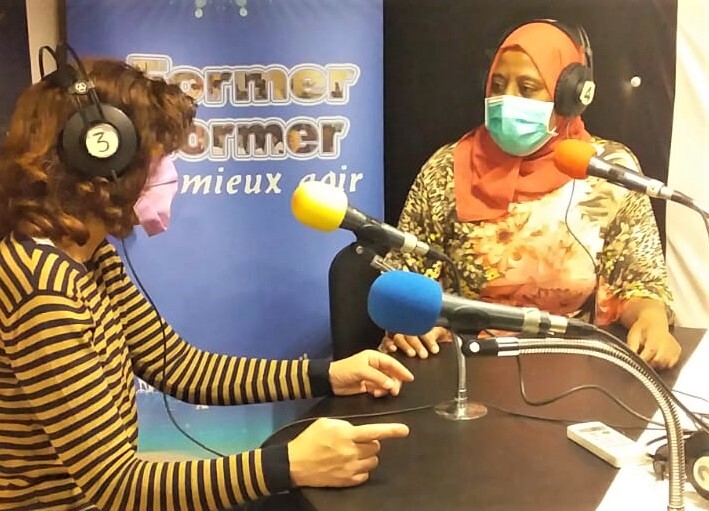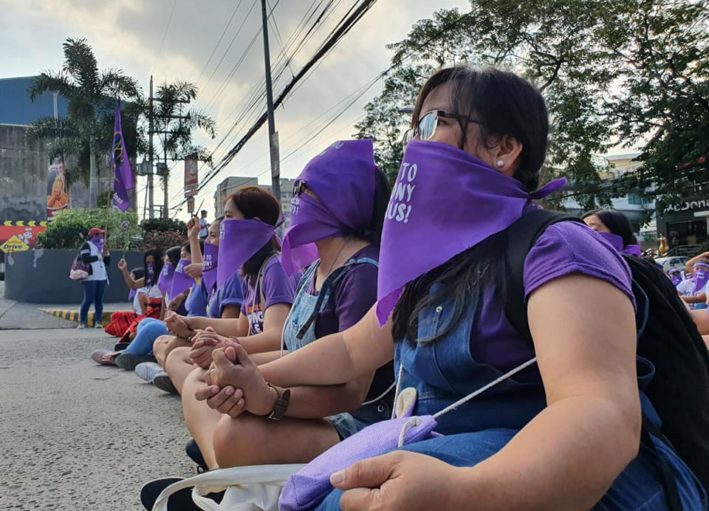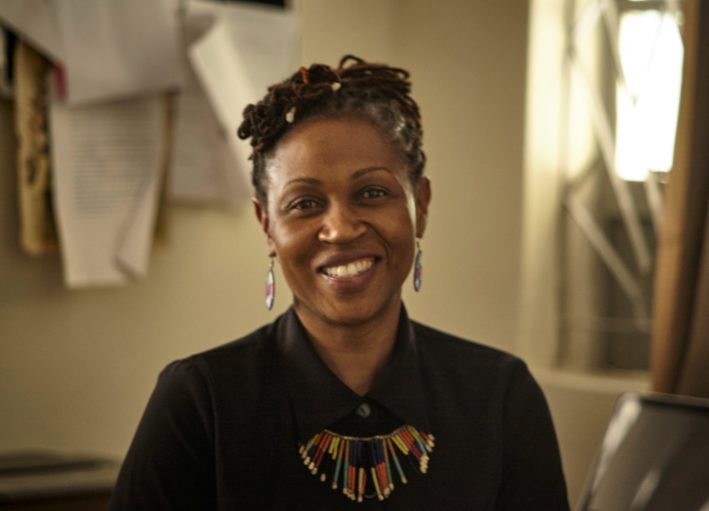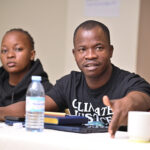This article was published more than 5 years ago.
This article is part of a series featuring inspiring stories of local action #fromthefrontlines of COVID-19 in the Global South. For more, visit our COVID-19 page and follow us on Facebook and Twitter.
For women facing domestic violence, lockdown comes with its own life-threatening risks. It is estimated that 15 million more cases of domestic abuse will occur in 2020 as a result of the pandemic—an increase of 20 percent.
The stay-at-home measures needed to curb the spread of COVID-19, combined with increasing unemployment or lack of job security, substance use, and uncertainty about finding food, has created what the United Nations called a “perfect storm” for domestic violence. Women are isolated from support networks and barriers to relocation or legal action are heightened.
In response, Fund-backed organizations across the globe are working tirelessly to reduce the risk of violence in the home and to ensure that women can still access critical resources.

Protecting Women from Abuse in Morocco
Nearly two years after Moroccan women’s groups helped secure passage of a law criminalizing several forms of domestic violence, organizations like El Amane continue to advocate for women’s rights and provide critical services helping women access the legal remedies now available. Their “listening center” is a safe space for women to receive training and counseling. They also run a shelter for women experiencing violence in Marrakesh. While many of their in-person services have been placed on hold, they have not paused their educational and awareness efforts. The group is using their community radio station to continue connecting women with information about their rights, support they can seek and legal actions that remain available.
Meanwhile in the mountain city of El Hajeb, women’s rights organization Amal-Maroc has also shifted how it helps address the critical needs of women facing domestic violence. Many of the women they serve are illiterate or lack access to technology, making them more vulnerable to financial intimidation and abuse. In response, Amal-Maroc is providing women with information via personalized telephone calls about how to obtain relief for themselves and their families, and how to navigate the complex processes to access the state’s pandemic aid for those in need. These calls are also providing a lifeline for women in threatening situations.

Tackling Hunger to Prevent Domestic Violence in the Philippines
In the Philippines, Women’s Legal and Human Rights Bureau (WLB) works with community-based, regional partners to reduce violence against women, conduct advocacy, and spur legal action. When the country went on lockdown mid-March, they quickly worked to assess needs and create a set of strategic interventions.
Food insecurity was identified as a critical driver of violence in many Filipino communities. Uncertainty about getting food adds to tension in the home, and many women are charged with finding food in addition to managing the house, earning money, and caring for children during the pandemic. Hence, WLB and their partners are working to tackle hunger as a violence prevention strategy. Together, these groups are helping women and families link up with accurate information about food distributions. They are also reallocating funds to ensure women in rural areas where government-sponsored relief is unlikely to reach have the means to secure food.

Getting Women in Uganda to Safety
In Uganda, women’s rights groups CEDOVIP and TERREWODE are finding inventive ways to protect women’s rights and lives during a very restrictive lockdown that bans virtually all public and private transport.
CEDOVIP has managed to provide select services to women in dire need in Kampala, such as helping them connect with health units and local police, and is delivering violence prevention programming via television and radio. It also issued a set of recommendations to the Ministry of Health on how it can help prevent domestic violence and ensure critical support services remain operational. In response to this and advocacy from fellow women’s rights organizations, President Museveni spoke out against increased violence against women on May 5, putting the issue of domestic violence during the lockdown on the national agenda.
Located in eastern Uganda, TERREWODE runs a specialized hospital where they treat women in need of fistula surgery while also conducting educational sessions for women around maternal health and childbirth. While most treatments and procedures have been postponed, part of the facilities have been converted to a shelter for women escaping abuse. The organization’s status as a health provider means that staff can arrange transportation for women, which has become virtually impossible otherwise due to the transport bans. They also are running a toll-free hotline for women to seek advice and support in emergency situations.


